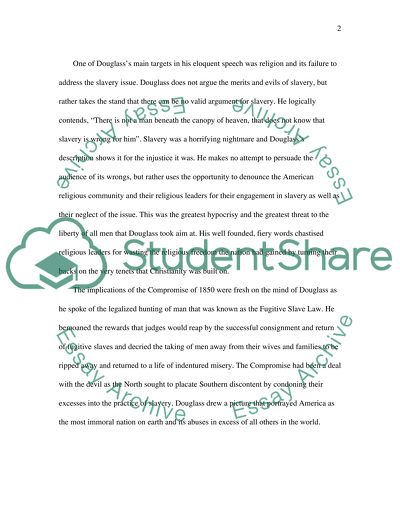Cite this document
(“Frederick Douglass on the Failure of Religion Essay”, n.d.)
Frederick Douglass on the Failure of Religion Essay. Retrieved from https://studentshare.org/miscellaneous/1534513-frederick-douglass-on-the-failure-of-religion
Frederick Douglass on the Failure of Religion Essay. Retrieved from https://studentshare.org/miscellaneous/1534513-frederick-douglass-on-the-failure-of-religion
(Frederick Douglass on the Failure of Religion Essay)
Frederick Douglass on the Failure of Religion Essay. https://studentshare.org/miscellaneous/1534513-frederick-douglass-on-the-failure-of-religion.
Frederick Douglass on the Failure of Religion Essay. https://studentshare.org/miscellaneous/1534513-frederick-douglass-on-the-failure-of-religion.
“Frederick Douglass on the Failure of Religion Essay”, n.d. https://studentshare.org/miscellaneous/1534513-frederick-douglass-on-the-failure-of-religion.


